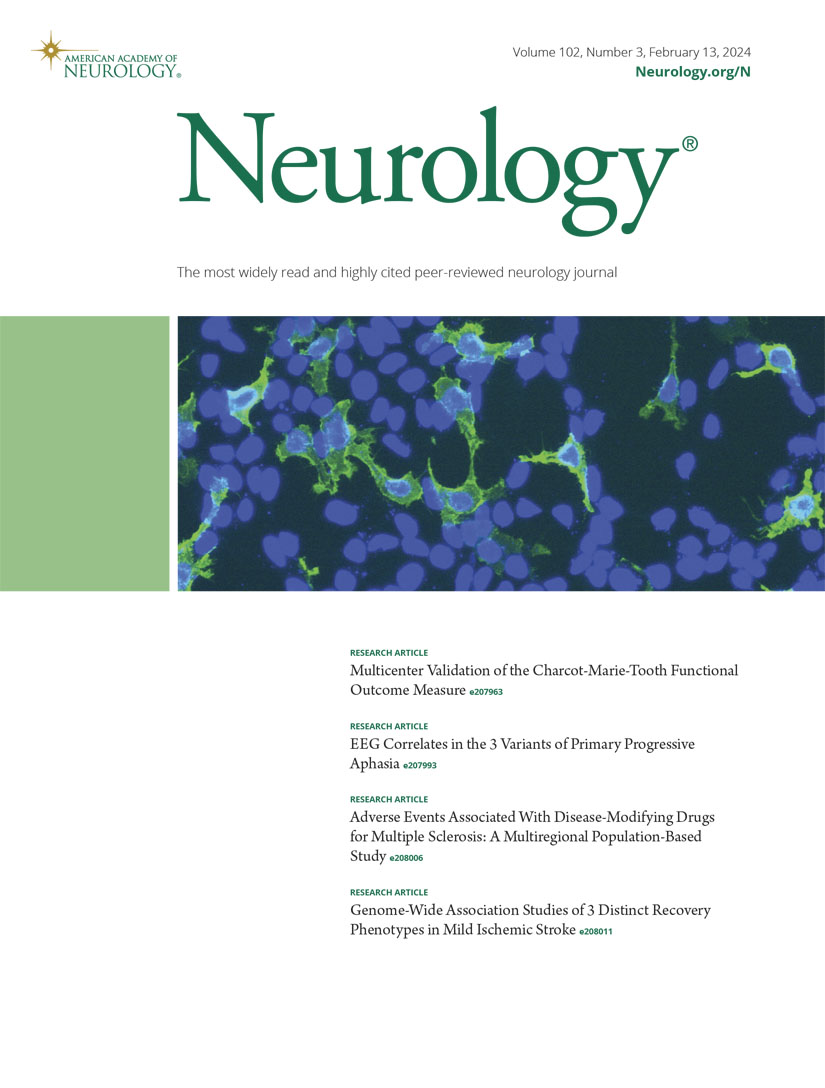Anti-Inflammatory Therapies for Atherosclerotic Stroke Prevention.
IF 8.5
1区 医学
Q1 CLINICAL NEUROLOGY
引用次数: 0
Abstract
Ischemic stroke caused by atherosclerosis is associated with the highest risk of recurrence among stroke etiologies, highlighting a residual risk that current secondary prevention strategies fail to address. Multiple lines of research implicate inflammation in the pathogenesis of atherosclerosis, including recent large cardiovascular outcome trials demonstrating that anti-inflammatory therapies can lower residual vascular risk in patients with coronary artery disease. Notably, low-dose colchicine, a long-used anti-inflammatory drug, has received approval for cardiovascular risk reduction in patients with atherosclerosis. However, translation of anti-inflammatory treatments to patients with ischemic stroke has been challenging, with the first colchicine trials showing neutral or conflicting results. In this study, we review the preclinical, genetic, and epidemiologic literature linking inflammation to atherosclerotic stroke; examine key findings of cardiovascular outcome trials for stroke prevention; and summarize completed and ongoing stroke-specific trials. We discuss the etiologic heterogeneity of ischemic stroke that may obscure anti-inflammatory treatment effects, highlighting the need for precision medicine approaches targeting patients with established atherosclerosis and vascular inflammation. Finally, we provide an overview of the emerging anti-inflammatory therapeutics that are under development for atheroprotection and outline a translational roadmap to accelerate clinical impact in stroke prevention.抗炎治疗预防动脉粥样硬化性中风。
在卒中病因中,动脉粥样硬化引起的缺血性卒中与复发风险最高相关,这突出了当前二级预防策略未能解决的剩余风险。多项研究表明炎症与动脉粥样硬化的发病机制有关,包括最近的大型心血管结局试验表明,抗炎治疗可以降低冠状动脉疾病患者的残留血管风险。值得注意的是,低剂量秋水仙碱,一种长期使用的抗炎药物,已被批准用于动脉粥样硬化患者的心血管风险降低。然而,将抗炎治疗转化为缺血性中风患者一直具有挑战性,首次秋水仙碱试验显示中性或相互矛盾的结果。在这项研究中,我们回顾了将炎症与动脉粥样硬化性中风联系起来的临床前、遗传学和流行病学文献;检查预防中风的心血管结局试验的主要发现;并总结已完成和正在进行的针对中风的试验。我们讨论了缺血性脑卒中的病因异质性,这可能会模糊抗炎治疗的效果,强调了针对已建立动脉粥样硬化和血管炎症患者的精准医学方法的必要性。最后,我们概述了正在开发的用于动脉粥样硬化保护的新兴抗炎疗法,并概述了加速脑卒中预防临床影响的转化路线图。
本文章由计算机程序翻译,如有差异,请以英文原文为准。
求助全文
约1分钟内获得全文
求助全文
来源期刊

Neurology
医学-临床神经学
CiteScore
12.20
自引率
4.00%
发文量
1973
审稿时长
2-3 weeks
期刊介绍:
Neurology, the official journal of the American Academy of Neurology, aspires to be the premier peer-reviewed journal for clinical neurology research. Its mission is to publish exceptional peer-reviewed original research articles, editorials, and reviews to improve patient care, education, clinical research, and professionalism in neurology.
As the leading clinical neurology journal worldwide, Neurology targets physicians specializing in nervous system diseases and conditions. It aims to advance the field by presenting new basic and clinical research that influences neurological practice. The journal is a leading source of cutting-edge, peer-reviewed information for the neurology community worldwide. Editorial content includes Research, Clinical/Scientific Notes, Views, Historical Neurology, NeuroImages, Humanities, Letters, and position papers from the American Academy of Neurology. The online version is considered the definitive version, encompassing all available content.
Neurology is indexed in prestigious databases such as MEDLINE/PubMed, Embase, Scopus, Biological Abstracts®, PsycINFO®, Current Contents®, Web of Science®, CrossRef, and Google Scholar.
 求助内容:
求助内容: 应助结果提醒方式:
应助结果提醒方式:


